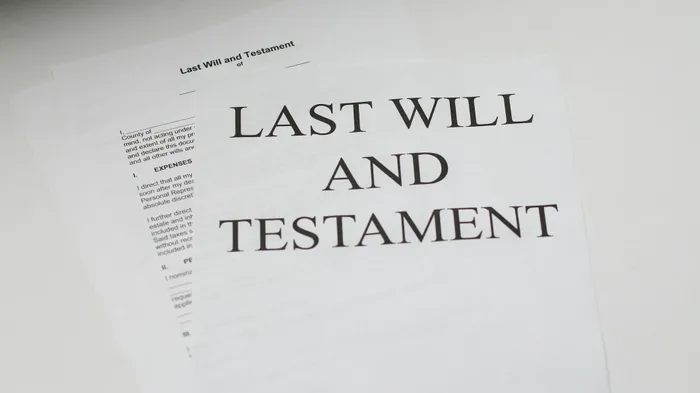
Two-thirds of South Africans don't have a will, putting their families at risk. In this expert guide, Sanlam Trust's Senior Legal Adviser answers the most pressing questions about wills - from preventing forgery to choosing executors - helping you secure your legacy and protect your loved ones.
Image: Unsplash
Do you have questions about your last will and testament? David Thomson, Senior Legal Adviser at Sanlam Trust, answers some of the key questions South Africans have raised with Sanlam during Wills Month.
He says that with two-thirds of South Africans (66%) not having a will (according to the 2025 Sanlam Legacy Wills Survey), this is a real concern for many South Africans. Understanding the process of drafting a will can help more people leave lasting legacies of love and avoid situations where families are left vulnerable and estates remain bogged down for years.
Thomson addresses some of the main questions:
Sadly, you can’t stop someone from trying. What you can stop is a forgery being accepted as valid. If a will is suspected of being fake, the Master of the High Court can be informed, and the courts can be asked to declare it invalid. Handwriting experts can identify fakes, and witnesses are crucial: if they weren’t present when the will was signed, it’s automatically invalid.
2. Executors: who are they, and do I need more than one?
An executor is the person or trust company you nominate in your will to carry out your wishes – from paying debts to distributing assets. The Master of the High Court formally appoints them if they are competent and can provide sufficient security. You don’t need two, but you can name an alternative in case your first choice can’t serve. If you appoint a trust company, there’s no need for a backup.
3. Timing: when is a will read?
There’s no prescribed time. A will can be read as soon as possible after someone passes away, and heirs have the right to know what’s in the will. But be careful with funeral instructions: wills are often read only after the funeral, so share wishes like cremation or organ donation directly with loved ones while you’re alive.
Sanlam Legacy Survey insight: 45% of the 33% of people with wills have not shared their wills’ contents with their loved ones. Having these conversations is critical; it’s also an opportunity to share last wishes like organ donation.
Storage: should I pay monthly fees?
Some providers do charge for safe custody of your will, but it’s important to check this.
Credibility: Does a DIY will from a store count?
Yes – but only if it complies with the Wills Act. It must be signed correctly, with a pen. It must also be witnessed by two people at the time of signing, and it should clearly express your intentions. Whether drafted by a lawyer, your bank, your broker, or bought at a stationery store, the key is compliance, not the source. Still, expert professional help in drafting your will is strongly recommended to avoid costly mistakes.
Contesting: what’s the point of writing a will if people can challenge it?
Contesting a will is rare and difficult. At Sanlam Trust, maybe one or two wills out of a thousand estates are challenged at any given time. It’s costly, involves a High Court application, and takes months or even years to finalise. You must prove invalidity: fraud, duress, or non-compliance with legal formalities. Simply being unhappy or excluded isn’t enough.
Why a will matters
Despite the risks, only 34% of South Africans currently have a will, according to the Sanlam Legacy Wills Survey. The main barriers? Many believe they don’t own enough assets (43%), and many procrastinate (27%). But a will isn’t about how much you own, it’s about who you love. It ensures your children have guardians, your assets go where you want them to, and your wishes are respected.
“The credibility of a will isn’t about where it comes from – it’s about whether it complies with the law and reflects your intentions. It’s one of the simplest but most powerful ways to protect your family and build generational wealth,” Thomson says.
PERSONAL FINANCE